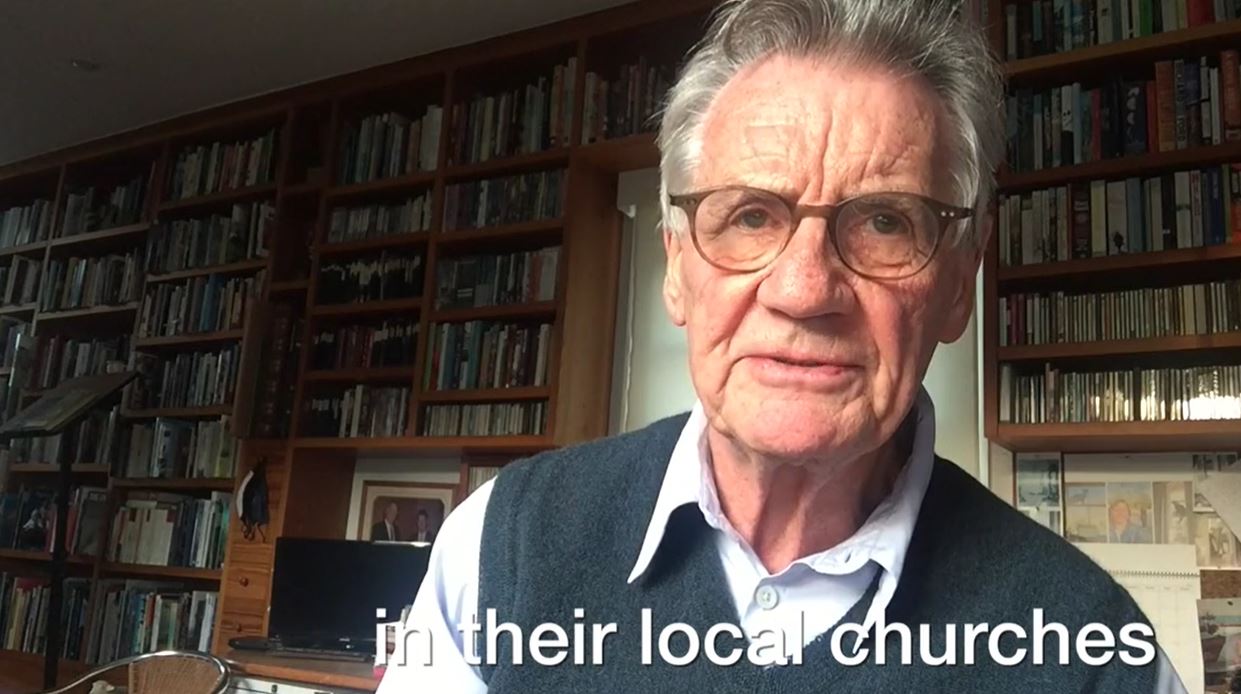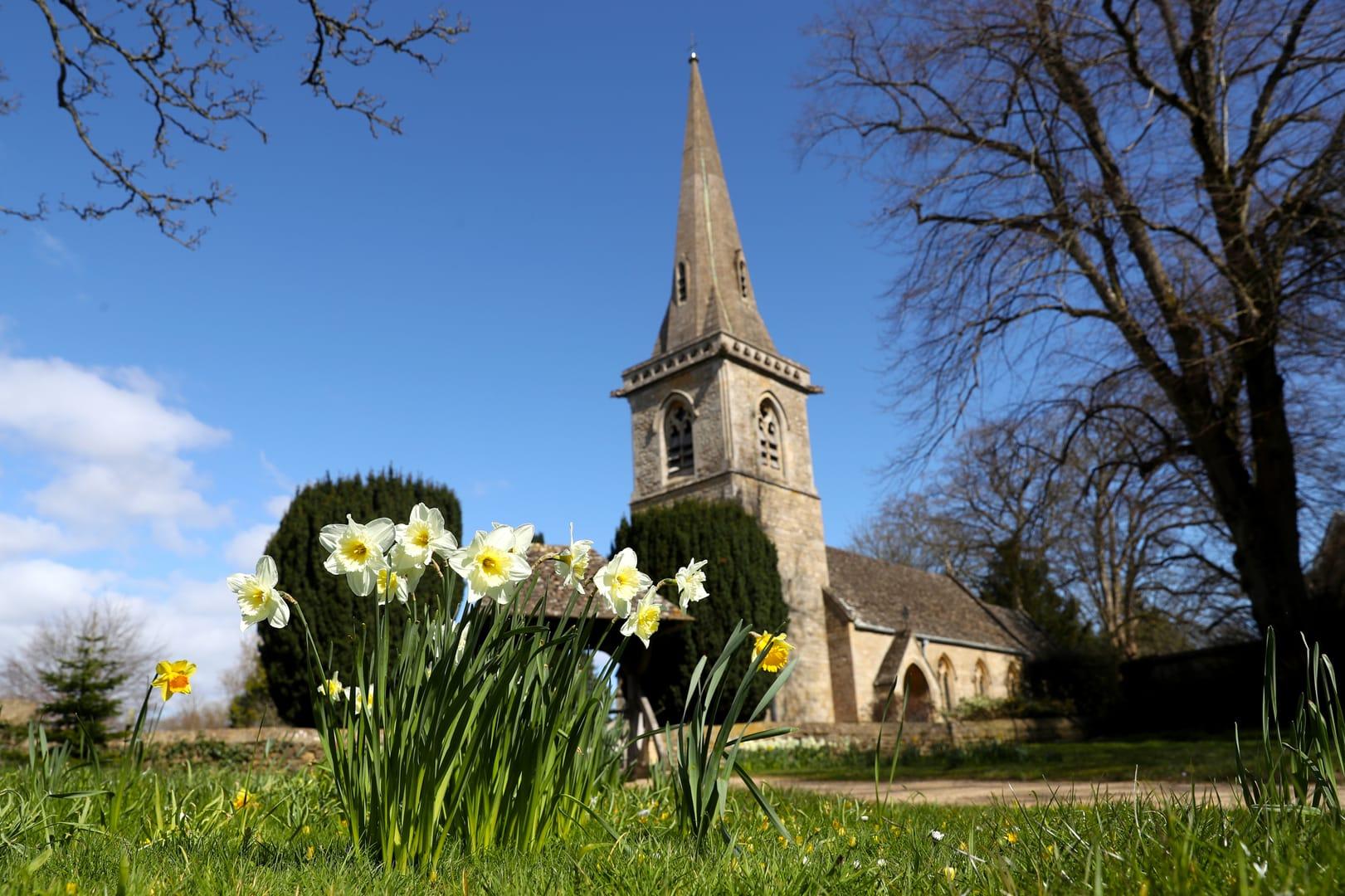LEICESTER, United Kingdom – Former Monty Python member Michael Palin says church buildings remain “a vital and much-loved part of the UK’s history and heritage and we can’t let them fall into neglect and disuse.”
After a year of intermittent church closures in the UK due to COVID-19, the National Churches Trust has launched a national debate to help safeguard the future of the UK’s local churches. The organization supports places of worship of historic, architectural and community value used by Christian denominations throughout the UK.
According to the trust, the number of churches open and being used for worship has fallen from around 42,000 to 39,800 in the last ten years, with closures being especially acute in some inner-city areas.
Palin, who serves as Vice President of the National Churches Trust, helped launch the campaign on Nov. 1.
“The restrictions of COVID-19, resulting in reduced funding and fewer worshippers, has clouded the future for many of [the UK’s churches.] Yet churches remain a vital and much loved part of the UK’s history and heritage and we can’t let them fall into neglect and disuse,” he said.
“There is hope. More and more churches are adapting to the modern world and the needs of their communities, providing not just spiritual comforts but a range of valuable services to local people such as foodbanks and youth clubs. We must build on this, and encourage people of all sorts and from all backgrounds to find hope and relevance in their local churches,” Palin added.

The National Churches Trust Funding warns that there could be many more church closures in the future, since the repair and maintenance of church buildings has to be raised by congregations and is not provided by central church authorities.
“It is particularly difficult for churches in deprived areas and rural churches with a small number of worshippers to pay for urgent repairs,” the organization said.
The trust says the latest figures show that the Church of England will have to find 1 billion pounds ($1.35 billion) to fund repairs to its 16,000 parish churches in the next five years.
“Church buildings are a unique national asset. It would be a huge mistake to let them decay when they provide around 55 billion pounds [$75 billion] of economic and social value to the UK each year,” said Claire Walker, the CEO of the National Churches Trust.
The number is derived from the UK government’s new Green Book guidance, which advises government officials on how to appraise the value of different programs and policies.
“Provision of services ranging from drug and alcohol counselling to youth groups offers benefits to the volunteers who run them as well as to those who use them. They bring people together for the common good and strengthen communities. In short, church buildings help to level up every single day: It’s what they do and always have done,” Walker said.
“Right now, many church buildings are in danger. That’s because there isn’t enough money available to fund urgent repairs and maintenance or to instal essential facilities such as toilets and kitchens,” she added.
Walker said the National Churches Trust is calling on philanthropic trusts, individuals, and central and local governments to work together to keep churches open and in good repair with up to date community facilities.
Bishop John Arnold of Salford, whose diocese covers the Manchester area, added a contribution to the debate, noting he hopes “that as many churches as possible can remain open and fulfilling their primary purpose.”
“But we should acknowledge that, though important and loved, they are not essential to the practice and mission of our faith. Sentimental attraction is understandable and has value, but it cannot override the fundamental mission of the Church,” said Arnold.
“While a church may be a central feature in a community, and an enduring sign and witness to faith, a redundant church can easily become a countersign, when it is allowed to decay and is left vulnerable to vandals and thieves,” he added.
The Salford bishop said there are three possible options for redundant churches: 1) Making them centers of social outreach, such as a food bank, training and learning facility, or homeless shelters; to sale the building to a charitable organization, “which allows it to remain a witness for good works”; or the demolition of the church building.
“This is always a sadness and understandable regret felt by many people who have had associations with the place, often over several generations. But it is an option that must be available,” he said.
Alexander Stafford, a Conservative Party member of Parliament representing a constituency in South Yorkshire, said that during the COVID-19 pandemic, “Britain’s magnificent churches proved their worth as food for the soul in these uncertain modern times.”
He said churches offer something to everyone, believer and non-believer alike, with the positive impact on individuals and on society being immeasurable.
“Our churches are an inclusive, multi-generational space, welcoming the young, the old, the disabled, the weak, and the vulnerable equally. They are located at the hearts of our communities and are there for the people who want and need them,” said Stafford, a Catholic.
“These versatile buildings can be used for various activities, ranging from music and the arts to youth groups and food banks. This utility not only brings countless economic benefits but also shows the wisdom of partially repurposing these awe-inspiring buildings so that we can simultaneously preserve them for their original use,” he added.
“If we are not flexible and creative regarding the future of our churches, in many cases they will wither and die.”
People can participate in “The Future of the UK’s Churches” debate on the National Churches Trust website.
Follow Charles Collins on Twitter: @CharlesinRome















